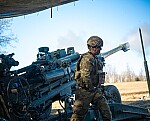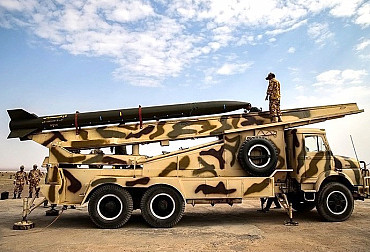The use of artificial intelligence is constantly expanding to other areas. Is biotechnology now also on the agenda?
Artificial Intelligence (AI) already has not only ever-improving algorithm systems and a growing number of applications, but also sources of information. This information can be drawn from data stores, sensors or information systems (Internet, IoT, etc.). Along with the evolution of AI performance and the information resources available to AI, new perspectives are opening up for this technology. Among the latter will be the linking of AI with biotechnology.

Linking AI and the human brain
Connecting AI with the human brain is also a subject of not only consideration but also real research in the field of biotechnology, which may aim to increase performance, improve the quality of life or improve the resilience of human health or treatment of diseases. There are also already thoughts of implementing microchips in the brain to enable interaction between humans and computers, i.e. also with AI.
However, human-AI interfacing can also be used in other ways. Brain stimulation itself can be misused for various purposes, e.g. to manipulate people. In other words, so far we have been able to think whatever we want, but the question is how long this will last. In this context too, biotechnology has the potential to generate a new dimension in hybrid warfare. In addition to greater control over people, it will be possible to evaluate more and more effectively the effects and impacts of information projects and campaigns. By using AI, it will thus be possible to synchronise and optimise the course of psychological operations ever more effectively.
Enhancing human capabilities
In addition to the use of biotechnology, we also include exoskeleton systems among the technologies supporting the enhancement of human capabilities (human augmentation). This technology can also be applied to increase the effectiveness of a soldier's capabilities on the battlefield, particularly where higher weight requirements are still placed on soldiers in terms of the equipment and armament they carry. Thus, the use of exoskeleton systems enhances the operational capabilities of troops.
By integrating with other technologies such as biotechnology, AI, nanotechnology or telerobotics (a field of robotics that deals with the remote control of semi-automatic and automatic machines), these systems will become increasingly applicable and important. Thanks to these technologies, humans can also approach the capabilities of robotic systems characterised by high performance, precision, durability, speed and time of use. In this respect, it will also depend on the human being himself to what extent he wants to "turn" into a robot or merely use robots. However, we should take into account different approaches, including ethical ones.
Artificial intelligence is now being used more and more effectively and is achieving considerable success in analysing large amounts of data, reacting quickly to external stimuli or creating virtual and augmented reality (especially various image and sound projections). Thanks to biotechnology, these AI capabilities could then be made directly available to humans.
Possible uses or misuses
It is becoming increasingly obvious that a new reality is fast approaching and the question is what role humans will play in it, especially in terms of their creative and leadership role. In this context, we are faced with many questions and ambiguous answers, mainly because we do not yet know what to expect from the impact of the use of new technologies, nor do we have any guarantees or clear predictions about how humans will deal with them.
Given that the current trend is towards the expansion and escalation of conflicts, it is to be expected that applications will be developed that will affect not only the conduct of economic and hybrid warfare, but also direct combat activities. Technological superiority may lead, as in the past, to a temptation to dominate others for personal gain. In the case of biotechnology, this may translate, for example, into preparing one's own population for war. The current problem of preparing for war is not only the organisational and material mobilisation of resources, but also the mental preparation of the population, including its willingness to fight for the objectives set. Therefore, more and more emphasis will be placed on the acquisition of the desired future consciousness of man.
The Future
Artificial intelligence is currently the only technology that can improve itself, based on machine learning. This "skill" not only represents a groundbreaking capability that inevitably foreshadows our future, but positions AI as superior in importance and impact to other technologies. Its further development should be aided by the application of the laws of nature to the brain, which can be used to create similar biological as well as pseudo-technical systems.
AI, with the use of other technologies, will not only be a tool for greater prosperity, but will also increasingly intrude into our lives, with its connection to biotechnology playing a significant role in controlling the human brain. Among other aspects, it will thus be important that AI, which is gradually expanding its scope and level of capability, also remains under human control in this case.
The convergence of new technologies with the 'assistance' of AI is likely to bring about, or is already bringing about, a significant game-changing effect. Throughout history, technology has always played an important role in the pursuit of power ambitions, and its use has often enabled the achievement of dominance. Today, we refer to such disruptive technologies as disruptive, and artificial intelligence already meets all the requirements for this label. We can expect that the development of biotechnology in conjunction with AI will make solutions available for "every" situation. We can then expect a significant impact, for example, for staying and travelling in space.
In the case of the combination of AI and biotechnology, it will also be true that 'the situation on the battlefield is changing by the moment' and lagging behind in this area might not be worthwhile.










